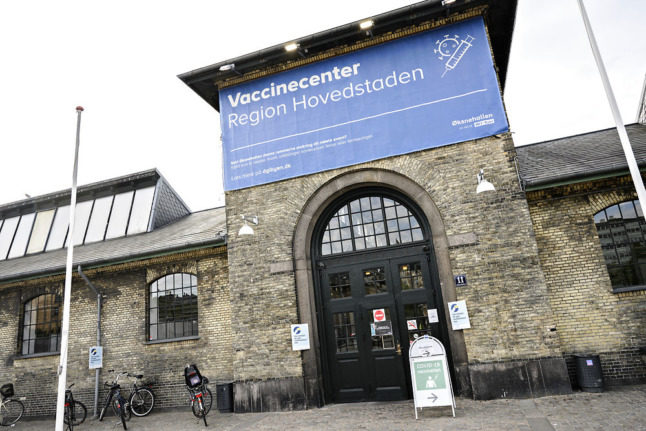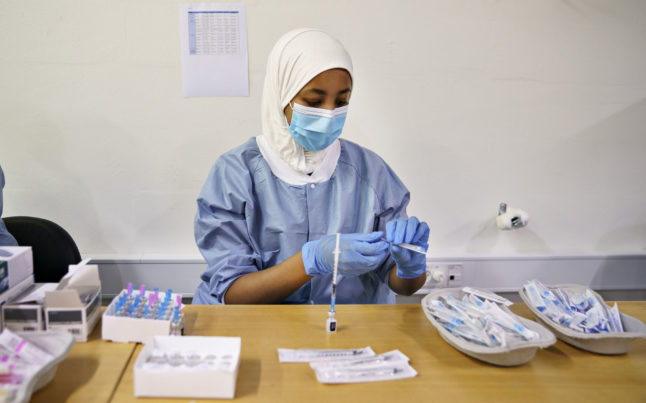The R-rate, a measure of the current spread of the coronavirus, was on Tuesday given as 0.7, the lowest figure for three months.
Denmark lifted almost all of its domestic Covid-19 restrictions at the start of this month.
From September 10th, Covid-19 will no longer be classed as a “critical threat to society”. That means the government will lose the legal powers to impose bans on people gathering, demands for Covid-19 passes, and demands for face masks.
Instead, the coronavirus will continue to be rated an infectious disease which is “dangerous to public health”, giving the government and health authorities additional powers to test people and collect and share health data.
In a message on Twitter, health minister Magnus Heunicke credited the country’s high vaccination level as a big factor in its current position with the epidemic.
Kontakttallet er i dag beregnet til 0,7. Vi kan altså konstatere en faldende epidemi her i start september! Det vidner om, at Danmark står et virkelig godt sted. Vaccinerne og alle borgere i Danmarks store indsats gennem lang tid er grundlaget for, at vi står så godt. #COVID19dk pic.twitter.com/xdHRWlPG64
— Magnus Heunicke (@Heunicke) September 7, 2021
Around 75.5 percent of the population have received at least one dose of a Covid-19 vaccine in Denmark. 72.8 percent are fully vaccinated, giving a total of 4,262,021 people, according to the latest official figures.
Since Denmark began its vaccination programme in December 2020, a total of 9,253 cases of Covid-19 have been detected in fully vaccinated people, the national infectious disease agency State Serum Institute (SSI) said in a statement on Tuesday.
The numbers cover all cases registered up to August 31st this year.
The so-called “breakthrough infections” are defined as infections which occurred after the full effect of vaccination is established.
As of August 31st, the proportion of breakthrough infections amongst fully vaccinated people is therefore 0.23 percent.
SSI’s data also gives the percentage of breakthrough infections amongst all infections during the same period as 4.9 percent, but somewhat higher at 20 percent for the month of August alone. That follows the much higher proportion of vaccinated people in the population in August compared to earlier in the pandemic.
The Delta variant of the coronavirus is responsible for 61.4 percent of breakthrough infections.
“A small but growing number of breakthrough infections was detected (for the overall period),” SSI director Henrik Ullum said in the statement.
“This is as expected as the number of fully vaccinated persons in the population increases,” Ullum noted.
“Data suggests, however, that persons with breakthrough infections more often have milder symptoms than persons who are not vaccinated,” the SSI director also said.
Of the 9,253 breakthrough infections, 375 people have been admitted to hospital within 14 days of a positive PCR test for Covid-19. 57 deaths have been recorded within 30 days of a breakthrough infection detected via PCR test.
That corresponds to hospitalisation and death percentages of 4.05 percent and 0.62 percent respectively for people who have been infected following vaccination, according to The Local’s calculations.
SSI notes in the statement that deaths amongst people with breakthrough infections occurred in the oldest age groups and are spread evenly throughout the period encompassed by the data.
Taken as a proportion of all vaccinated people, breakthrough infections occurred in 0.009 percent of vaccinated people and deaths due to breakthrough infections in 0.001 percent of vaccinated people, according to The Local’s calculations.
It should be noted these calculations use the total number of vaccinations as reported on September 7th, but breakthrough infections figures up to August 31st.
READ ALSO: Covid-19: Danish R-number at lowest level since June



 Please whitelist us to continue reading.
Please whitelist us to continue reading.
Member comments